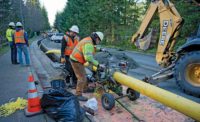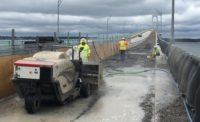Delays and difficulties gaining approval to construct natural-gas pipelines in New York have led utility Con Edison to seek alternative ways of meeting the growing demand for natural gas in the New York City metropolitan region.
The utility on Dec. 18 issued a request for proposals for options to reduce demand and serve natural-gas customers in alternative ways. The company says it will invest up to $100 million a year to avoid building a major gas pipeline.
"This is a large and groundbreaking opportunity," said ConEd's Scott Butler, the RFP's team leader, on a recent webinar on the request.
Alternatives could include natural-gas storage, biogas technologies, conversion to electricity and energy efficiency, according to the utility's RFP. According to ConEd, the goal is to offset more than 100,000 dekatherms of natural gas a day, equivalent to 50,000 homes. The company won't consider alternatives that use other fossil fuels.
As more customers are switching to natural gas from fuel oil, ConEd, which serves Manhattan, the Bronx, Westchester and parts of Queens, has seen demand for natural gas grow 30% since 2011 and expects demand to grow another 20% over the next 20 years.
At the same time, however, New York has denied construction of major pipelines in the state. Further, until recently, the Federal Energy Regulatory Commission has not had enough members to approve interstate natural-gas pipelines.
The utility says it is not abandoning its pipeline projects, including the Mountain Valley Pipeline.
"We support projects that help us meet our customers' heating needs, including new gas pipelines," company spokesman Michael Clendenin noted in an emailed statement. "There are some pipeline projects that we've already contracted for that are in the permitting or development stages. Our effort with the RFP is to help us look for alternatives to new pipeline projects that have not yet been proposed."
In an October filing with the New York Public Service Commission, the company noted that, if it is unable to achieve its goals through non-pipe alternatives, the company will pursue traditional pipeline expansion.





Post a comment to this article
Report Abusive Comment